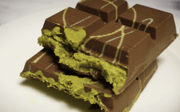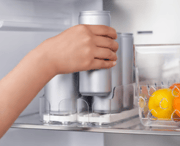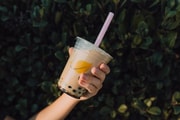How this surprising change in one state impacts your takeaway coffee
- Replies 11
The increasing awareness of environmental issues has led to significant changes globally, and now, it’s set to alter the way Aussies in one state enjoy their daily brew.
In an unprecedented move, Western Australia (WA) has implemented a ban on single-use, non-compostable coffee cups as of Friday, 1 March, paving the way for a more sustainable future Down Under.
The state's groundbreaking step is part of a determined push to reduce waste and minimise plastic pollution drastically.
Businesses caught disregarding these rules will be slapped with hefty fines—up to $25,000 for companies and $5,000 for individuals.
This legislation does not mean the end of takeaway coffee altogether.
Instead, cafes can use compostable paperboard alternatives. At the same time, they are encouraged to promote the adoption of reusable cups among customers.
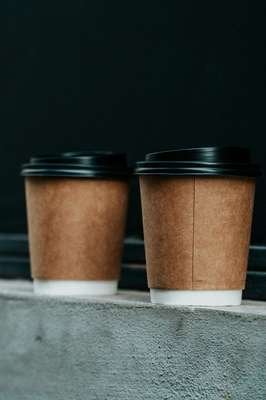
Takeaway coffee cup lids have not been overlooked; they must now be crafted from sustainable materials such as paper or bagasse, the fibrous matter that remains after sugarcane stalks are crushed to extract their juice.
Environment Minister Reece Whitby has voiced that this initiative is a significant milestone within the state government’s 'Plan for Plastics,' a comprehensive strategy to combat single-use plastics in Western Australia.
This ban is already building on the success of previous efforts, which have prevented a staggering 430 million single-use items from burdening landfill sites annually.
Whitby also highlighted that this latest ban continues environmental progress in WA, following previous prohibitions on plastic cotton buds with plastic shafts, degradable plastics, and microbeads.
‘The state government will continue to work with retailers and the community to ensure that the changes are well understood and implemented successfully.’ he said.
Since early last year, businesses have reportedly been provided sufficient lead time to phase out non-compostable cups.
This forward-planning stems from concerning data: a consultation paper revealed that individuals in WA consumed approximately 182 million coffee cups yearly.
While the focus last March 1 was on coffee cups, this is just one piece of a larger puzzle. WA is set to introduce additional prohibitions later this year.
As of September 1st, there will be a statewide ban on non-compostable produce bags, plastic lids for various takeaway food containers, and specific plastic-lined paper cartons, markedly those used for noodle dishes.
It's noteworthy that South Australia is hot on Western Australia's heels, planning on instituting similar restrictions in September. Meanwhile, New South Wales and Victoria have yet to make formal commitments to similar legislation.
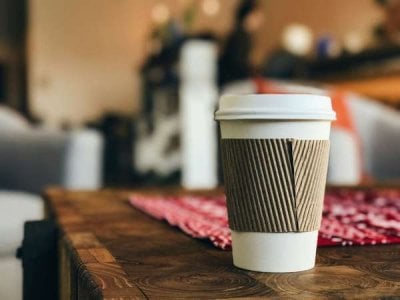
Members, the ripple effect of Western Australia's legislative change is one to watch. It reflects a growing trend toward environmental responsibility in our consumer habits.
In the same breath, we understand how this change can be challenging for some. Here are steps you can take to adapt:
1. Invest in a good-quality reusable coffee cup or 'keep cup' you can take whenever you grab a coffee.
2. Become familiar with compostable cup materials to ensure your takeaway cups are compliant if the café has not yet transitioned.
3. Support local businesses that demonstrate a commitment to sustainability and are actively trying to reduce their environmental footprint.
4. Engage in community discussions and educational events around environmental best practices to stay informed.
5. Encourage the younger members of your family to adopt these habits—after all, the move to sustainability is a collective effort.
Grabbing a cup of coffee is a ritual many Australians cherish. With this legislative change, Western Australians have the opportunity to make this daily habit a sustainable one. So, not only can we all enjoy our lattes or flat whites, but we can also take pride in knowing that every sip contributes to a healthier and more sustainable Australia.
 How do you feel about these changes, members? Share your thoughts and tips with the Seniors Discount Club community!
How do you feel about these changes, members? Share your thoughts and tips with the Seniors Discount Club community!
In an unprecedented move, Western Australia (WA) has implemented a ban on single-use, non-compostable coffee cups as of Friday, 1 March, paving the way for a more sustainable future Down Under.
The state's groundbreaking step is part of a determined push to reduce waste and minimise plastic pollution drastically.
Businesses caught disregarding these rules will be slapped with hefty fines—up to $25,000 for companies and $5,000 for individuals.
This legislation does not mean the end of takeaway coffee altogether.
Instead, cafes can use compostable paperboard alternatives. At the same time, they are encouraged to promote the adoption of reusable cups among customers.

The coffee cup lid change helps Mother Earth in a big way, collectively. Image credit: Ceyda Çiftci/Unsplash
Takeaway coffee cup lids have not been overlooked; they must now be crafted from sustainable materials such as paper or bagasse, the fibrous matter that remains after sugarcane stalks are crushed to extract their juice.
Environment Minister Reece Whitby has voiced that this initiative is a significant milestone within the state government’s 'Plan for Plastics,' a comprehensive strategy to combat single-use plastics in Western Australia.
This ban is already building on the success of previous efforts, which have prevented a staggering 430 million single-use items from burdening landfill sites annually.
Whitby also highlighted that this latest ban continues environmental progress in WA, following previous prohibitions on plastic cotton buds with plastic shafts, degradable plastics, and microbeads.
‘The state government will continue to work with retailers and the community to ensure that the changes are well understood and implemented successfully.’ he said.
Since early last year, businesses have reportedly been provided sufficient lead time to phase out non-compostable cups.
This forward-planning stems from concerning data: a consultation paper revealed that individuals in WA consumed approximately 182 million coffee cups yearly.
While the focus last March 1 was on coffee cups, this is just one piece of a larger puzzle. WA is set to introduce additional prohibitions later this year.
As of September 1st, there will be a statewide ban on non-compostable produce bags, plastic lids for various takeaway food containers, and specific plastic-lined paper cartons, markedly those used for noodle dishes.
It's noteworthy that South Australia is hot on Western Australia's heels, planning on instituting similar restrictions in September. Meanwhile, New South Wales and Victoria have yet to make formal commitments to similar legislation.

Enjoy savouring a coffee cup while supporting eco-friendly practices. Image credit: Ross Varrette/Unsplash
Members, the ripple effect of Western Australia's legislative change is one to watch. It reflects a growing trend toward environmental responsibility in our consumer habits.
In the same breath, we understand how this change can be challenging for some. Here are steps you can take to adapt:
1. Invest in a good-quality reusable coffee cup or 'keep cup' you can take whenever you grab a coffee.
2. Become familiar with compostable cup materials to ensure your takeaway cups are compliant if the café has not yet transitioned.
3. Support local businesses that demonstrate a commitment to sustainability and are actively trying to reduce their environmental footprint.
4. Engage in community discussions and educational events around environmental best practices to stay informed.
5. Encourage the younger members of your family to adopt these habits—after all, the move to sustainability is a collective effort.
Grabbing a cup of coffee is a ritual many Australians cherish. With this legislative change, Western Australians have the opportunity to make this daily habit a sustainable one. So, not only can we all enjoy our lattes or flat whites, but we can also take pride in knowing that every sip contributes to a healthier and more sustainable Australia.
Key Takeaways
- Western Australia (WA) has introduced a ban on single-use, non-compostable coffee cups, the first Australian state to do so.
- Businesses and individuals face significant fines if they do not comply with the new environmental laws.
- The ban is part of the state's Plan for Plastics, which aims to reduce plastic waste and its impact on landfills.
- More plastic items, including non-compostable produce bags and plastics used in takeaway containers, will be banned from September 1 in WA.




